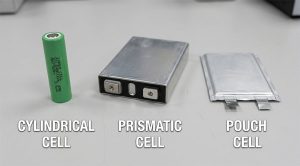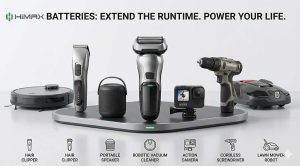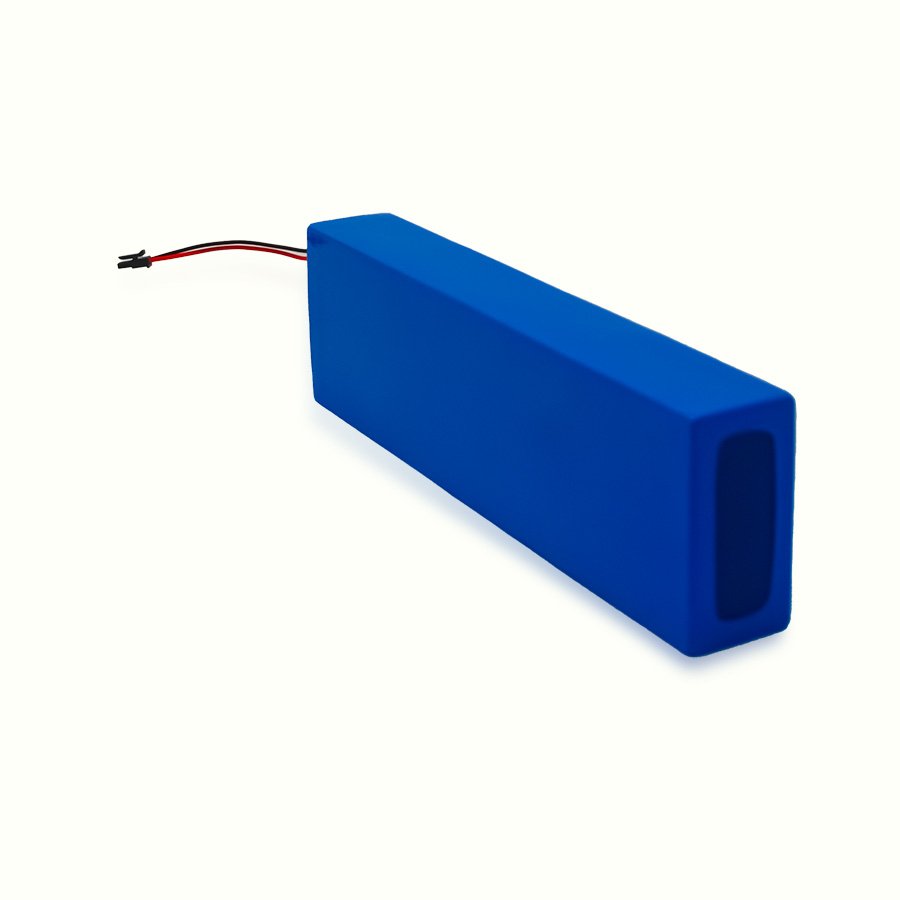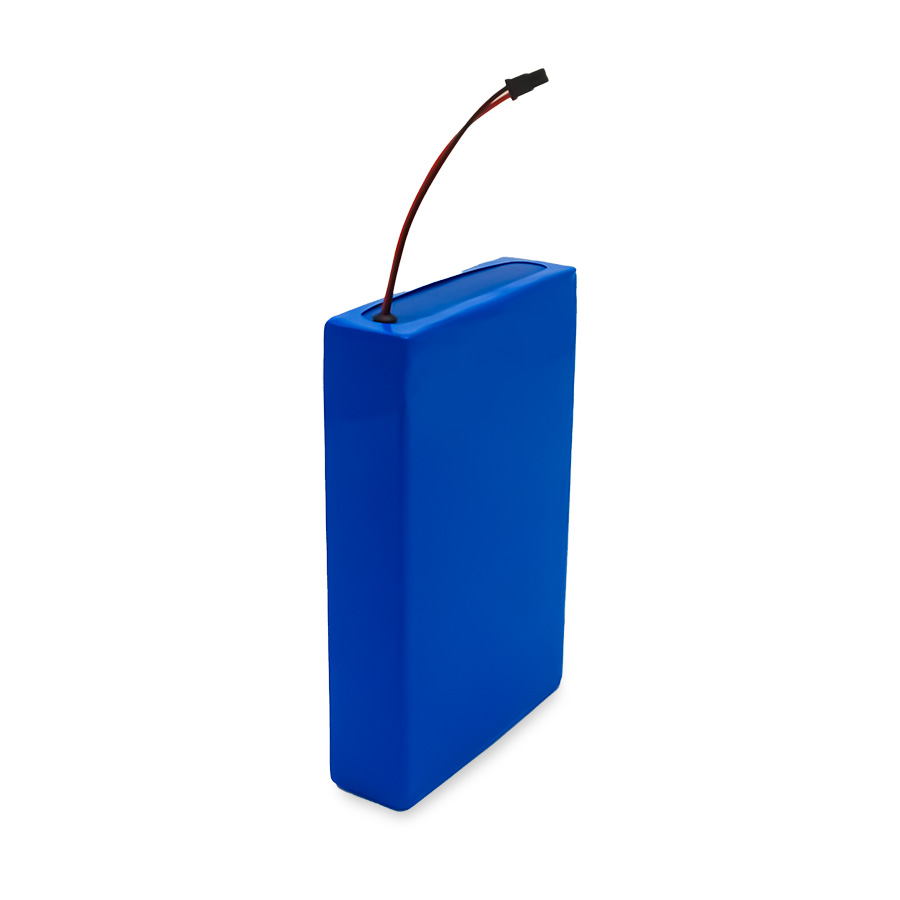Many people own multiple battery-powered devices, and it is common to mistake one type of charger for another. As lithium-ion devices become more popular, users often wonder if a lithium-ion charger can also charge a NiMH battery. The short answer is simple: No, a lithium-ion charger should never be used to charge a NiMH battery. The two battery chemistries are fundamentally different, and using the wrong charger can create serious safety hazards.
HIMAX explains why these two systems are incompatible, what risks are involved, and what most people do not realize about these dangers. To help you fully understand, we will break down the science, the charging mechanisms, the potential damage, and best practices for safe charging.
The Chemistry Difference Between Lithium-Ion and NiMH Batteries
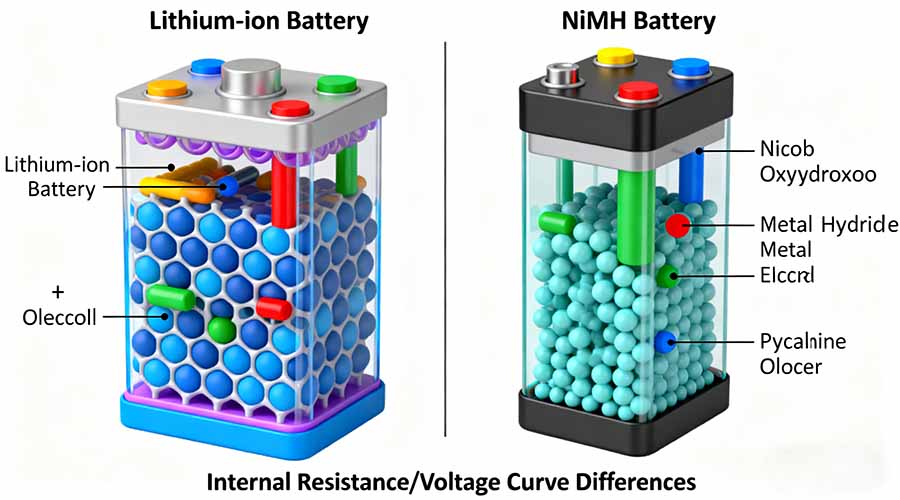
To understand the risks, you must first understand how each battery type works. A lithium-ion battery uses lithium-based compounds to store and release energy. A NiMH battery, which stands for nickel-metal hydride, uses nickel oxyhydroxide, metal-hydride materials, and an alkaline electrolyte.
The internal resistance, voltage curve, charging thresholds, and reaction behaviors differ greatly between these two chemistries. Because of these differences, chargers for one type cannot handle the demands of the other. A lithium-ion charger uses strict voltage controls and requires precise management of charging stages. A NiMH charger uses a different technique that monitors temperature rise or voltage drop. They are simply not compatible.
The Charging Methods Are Completely Different
A lithium-ion charger uses a “constant current–constant voltage” method, often called CC/CV. This means the charger delivers a set current and then shifts to a steady voltage phase when the battery reaches a specific point.
A NiMH battery, however, does not use CC/CV charging. Instead, it uses a completely different method that detects the moment the voltage peaks, known as the “negative delta V.” A NiMH charger also monitors heat generation, because NiMH rechargeable packs warm up noticeably when they reach capacity. This is normal behavior for nickel-metal hydride cells.
Because these detection mechanisms differ so much, using a lithium-ion charger on NiMH chemistry prevents the battery from signaling when it is full. That failure results in overcharging.
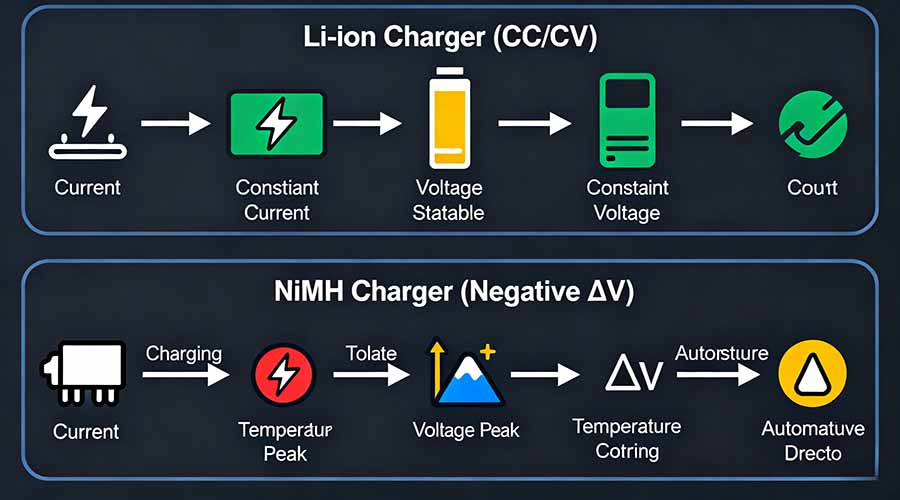
The Safety Hazards Most People Overlook
Many users do not understand the danger because NiMH batteries do not explode as violently as lithium-ion batteries. However, they do experience failure in ways that are easy to overlook. If you charge them with the wrong charger, these are the common hazards:
NiMH chemistry generates heat during charging. Using a lithium-ion charger adds even more heat. This raises the cell temperature far beyond safe levels. You may not see flames, but internal components degrade rapidly.
The metal-hydride materials in a NiMH battery absorb hydrogen. When overcharged, hydrogen forms faster than the battery can dissipate. This pressure buildup causes the cell to bulge, crack, or leak electrolyte.
When a NiMH battery vents, corrosive alkaline electrolyte escapes. This fluid damages devices, corrodes metal, and irritates skin.
A single overcharge event can permanently reduce a battery’s capacity. This means less runtime, shorter service life, and unpredictable performance.
Lithium-ion chargers are sensitive electronic devices. Forcing them to charge incompatible batteries stresses internal components and creates electrical instability.
Although rare, an overheated NiMH battery can ignite surrounding materials. This usually happens when pressure and heat build up and the cell fails catastrophically.
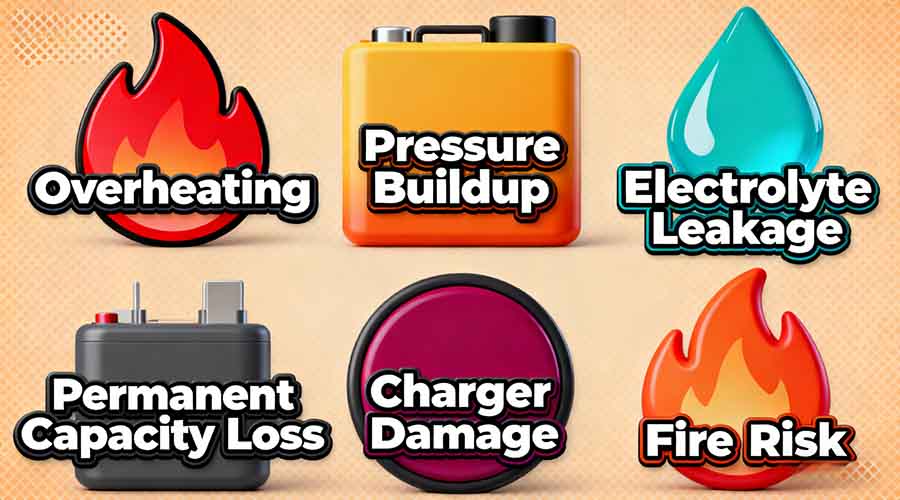
Can a Universal Charger Solve This Problem?
Some universal chargers claim to support multiple chemistries. However, you must confirm that the charger specifically lists NiMH support. A safe universal charger must adjust voltage, current, and detection methods based on battery type. Without these protections, the risk remains.
If a charger only lists lithium-ion compatibility, do not attempt to charge a NiMH battery with it under any circumstances.
How to Properly Charge a NiMH Battery
To safely charge NiMH chemistry, follow these rules:
- Use a charger specifically labeled for NiMH battery charging.
- Choose a smart charger that detects negative delta V.
- Select a charger with heat monitoring and automatic shutoff.
- Charge batteries in a well-ventilated area to prevent heat buildup.
- Avoid fast chargers unless necessary. Slow charging reduces stress on the cells.
- Never charge damaged or swollen batteries.
Using the correct charger ensures longer battery life, higher stability, and safer operation.
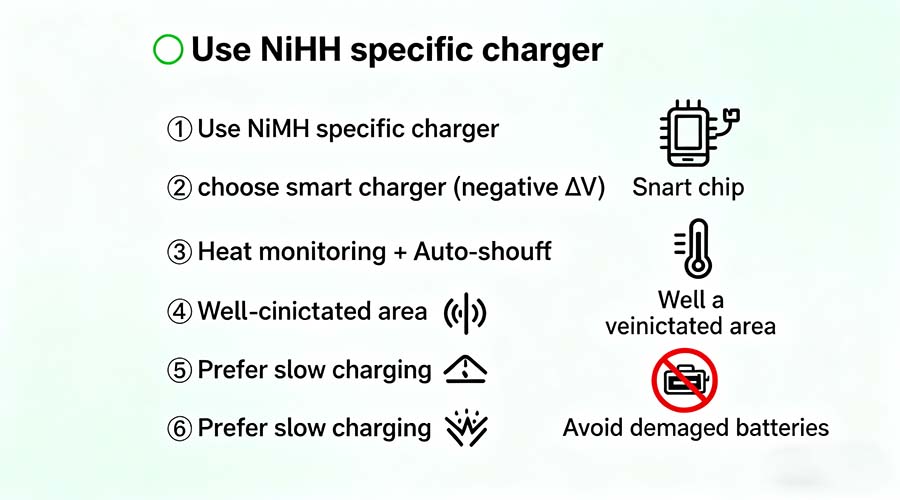
What Happens If You Accidentally Use the Wrong Charger?
If you have accidentally charged a NiMH battery with a lithium-ion charger, stop using the battery immediately. Inspect it for:
- Heat damage
- Leaking electrolyte
- Distortion or bulging
- Abnormal smell
Even if the battery appears normal, internal chemical damage may have occurred. It is safer to recycle the battery and replace it with a fresh one. Continuing to use a compromised battery increases the risk of fire or device damage.
Why Manufacturers Strongly Warn Against Mixing
Battery manufacturers spend years researching safe charging limits. They design chargers precisely around each chemistry’s tolerance. A lithium-ion charger protects lithium-ion cells, and a NiMH charger protects nickel-metal hydride cells. Mixing them defeats all built-in safety features.
When users mix chargers and batteries, manufacturers cannot guarantee safety. That is why mixing battery chemistries voids warranties and is strongly discouraged by industry experts.
HiMAX NiMH Battery Introduction
HiMAX provides high-performance NiMH batteries designed with advanced safety and long cycle life. Each cell uses premium nickel-metal hydride chemistry to deliver stable discharge, reliable temperature resistance, and consistent power output. HiMAX’s engineering ensures low self-discharge, excellent durability, and safe charging behavior across a wide range of applications. Whether used in consumer electronics, industrial equipment, or professional tools, HiMAX NiMH batteries deliver dependable performance backed by strict quality standards and rigorous testing.
Find articles related to NiMH Battery

